
Joshua K. Sabari, MD, highlights pharmacists’ roles in coordinating access, financial assistance, and early adverse effect management for patients starting zongertinib (Hernexeos).

Joshua K. Sabari, MD, highlights pharmacists’ roles in coordinating access, financial assistance, and early adverse effect management for patients starting zongertinib (Hernexeos).

Joshua K. Sabari, MD, explains zongertinib’s (Hernexeos) favorable safety profile and quality-of-life benefits over intravenous antibody-drug conjugates in patients with HER2-mutated non-small cell lung cancer (NSCLC).

E. Camille Vaughan, MD, MS, addresses how state-level differences and potential new prescription requirements could impact patient access to COVID-19 vaccines this fall.

Jessica Lewis-Gonzalez, PharmD, BCOP, discusses the challenges of managing myelofibrosis, from its heterogeneity and symptom burden to limited curative options.
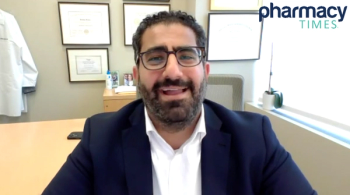
Joshua K. Sabari, MD, discusses how zongertinib’s inclusion in the National Comprehensive Care Network (NCCN) guidelines represents a game-changing second-line treatment for HER2-mutant non-small cell lung cancer (NSCLC).

Susan Cantrell, RPh, MHL, CAE, CEO of the Academy of Managed Care Pharmacy (AMCP), warns that politicizing the Advisory Committee on Immunization Practices (ACIP) could undermine vaccine trust.
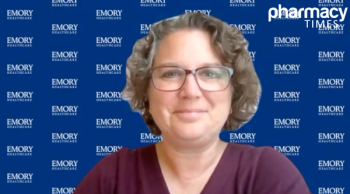
E. Camille Vaughan, MD, MS, highlights the key role pharmacists play in providing clear, trusted guidance for patients seeking COVID-19 vaccines this fall.

A chief pharmacy officer emphasizes the vital role of pharmacists in enhancing patient care, advocating for recognition, and integration within health care systems.

Allison Hill, PharmD, RPh, highlights the need for pharmacists to leverage resources, collaborate with other providers, advocate on social media, and support rural communities with limited access to care.
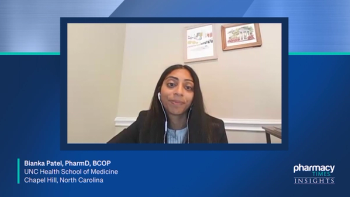
A panelist discusses how emerging chronic myeloid leukemia treatment advancements, including the addition of asciminib as a frontline tyrosine kinase inhibitor (TKI) option and ongoing research into dual TKI therapy and optimal dosing strategies, are expanding therapeutic choices while pharmacists play a key role in educating patients and providers about evolving treatment algorithms, evaluating new literature, and helping teams manage newer agents with less clinical experience.

Panelists discuss how the importance of having pharmacists embedded in oncology clinics has transformed metastatic colorectal cancer care by enabling real-time decision-making and dose adjustments, while highlighting that these are exciting times with multiple new oral treatment options that patients often prefer over infusions, though managing adherence and side effects remains challenging, and emphasizing that current targeted therapy opportunities include rare but actionable NTRK fusions, HER2 amplifications (3% of cases with multiple treatment options), and KRAS G12C mutations (3% of cases), with future promise in pan-RAS inhibitors, expanded immunotherapy beyond MSI-high tumors, and combination therapies, though dermatologic toxicity from targeted agents like RAS inhibitors will likely be the rate-limiting factor requiring better assessment tools and multidisciplinary management including dermatology support.
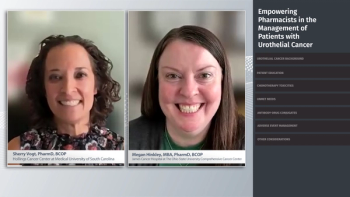
Sherry Vogt, PharmD, BCOP; and Megan Hinkley, PharmD, MBA, BCOP, discuss how pharmacists play a crucial role in managing patients with bladder cancer through treatment selection, patient education, adverse effect monitoring, and the evolving landscape of therapies including traditional chemotherapy, immunotherapy, and antibody-drug conjugates like enfortumab vedotin plus pembrolizumab.
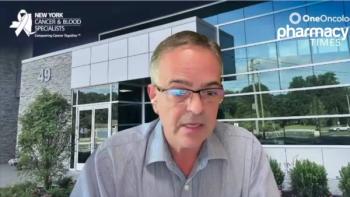
David Eagle, MD, Chair of Legislative Affairs and Patient Advocacy, explains how CMS’s ban on community oncology practices mailing medications creates inequities with PBMs and adds burdens for vulnerable cancer patients.

Susan Cantrell, RPh, MHL, CAE, highlights the Equitable Community Access to Pharmacy Services (ECAPS) Act as the top federal priority to preserve pharmacists’ authority in testing, treatment, and immunization services.

An expert discusses strategies for educating patients about the serious, long-term complications of shingles by using vivid, relatable language and real-life examples—emphasizing the disabling nature of postherpetic neuralgia, leveraging personal stories to increase vaccine receptivity, and reframing shingles as a pain condition rather than just a rash to prompt more meaningful prevention conversations.

An expert discusses how to effectively engage patients in conversations about the shingles vaccine by using visual aids, clarifying misconceptions, and personalizing education based on timing and health status; they emphasize the importance of setting realistic expectations about adverse effects, identifying high-risk individuals through prescription history, and leveraging pharmacists’ regular contact with patients to drive timely, impactful vaccine recommendations.

Allison Hill, PharmD, RPh, discusses how rapid changes in vaccine schedules and state-level authority highlight the importance of the American Pharmacists Association's advocacy.

Sherry Vogt, PharmD, BCOP; and Megan Hinkley, PharmD, MBA, BCOP, discuss how pharmacists play a crucial role in managing patients with bladder cancer through treatment selection, patient education, adverse effect monitoring, and the evolving landscape of therapies including traditional chemotherapy, immunotherapy, and antibody-drug conjugates like enfortumab vedotin plus pembrolizumab.

Susan Cantrell, RPh, MHL, CAE, CEO of the Academy of Managed Care Pharmacy, stresses the importance of listening, empathy, and science-based communication in pharmacists’ efforts to guide patients through vaccine decisions.
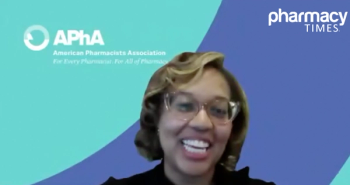
Allison Hill, PharmD, RPh explains how pharmacists’ accessibility and trusted relationships make them key to combatting vaccine hesitancy.

Alyssa Modic, PharmD, discusses the evolving role of pharmacists in adult immunizations and strategies to improve respiratory syncytial virus (RSV) vaccine education and uptake.
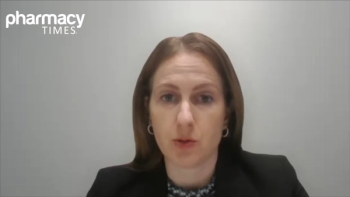
Explore the benefits and challenges of long-acting injectables (LAIs) in managing schizophrenia for improved patient outcomes.

Employers are facing higher costs and employees higher premiums as 340B’s growth drives lost rebates and rising drug prices.

Allison Hill, PharmD, RPh, emphasized that pharmacists must stay updated on ACIP and state-level guidance following HHS’s changes to COVID-19 vaccine authorizations.

Panelists discuss how future research in refractory metastatic colorectal cancer must prioritize patient-centered approaches by incorporating patient advocates to understand what patients truly value and care about most, citing the example of rectal cancer where clinicians focus on recurrence risk while patients prioritize ostomy concerns, emphasizing that historically clinical trial design has not adequately asked patients about their priorities, and explaining that staying current with rapidly evolving data requires multidisciplinary strategies including journal clubs with board-certified oncology pharmacists, morning huddle meetings for clinical pearls, pharmacy resident presentations, professional organization memberships like ASCO for daily updates, and increasingly using social media platforms like Twitter as starting points to identify relevant clinical developments before delving deeper into primary literature.

Panelists discuss how endpoint prioritization in late-line metastatic colorectal cancer therapy differs between providers and patients, with pharmacists focusing primarily on progression-free survival and quality of life since patients frequently ask about living long enough to reach specific life events rather than overall survival statistics, while oncologists balance survival importance with comfort using regimens that have robust response rates and good quality of life even without level-one survival evidence, emphasizing that future research must be patient-centered by incorporating patient advocates and understanding what patients truly value most, as demonstrated by the disconnect between clinician focus on recurrence risk versus patient concerns about ostomy outcomes in rectal cancer, and requiring multidisciplinary approaches to staying current with evolving data through journal clubs, professional organization memberships, and increasingly social media platforms as starting points for identifying relevant clinical developments.

A panelist discusses how pharmacists can significantly improve treatment adherence in chronic myeloid leukemia patients through regular patient touchpoints, adherence monitoring, and personalized strategies that address individual barriers, while emphasizing the importance of incorporating patient preferences and goals into tyrosine kinase inhibitor selection through shared decision-making to optimize long-term therapy success.

Expert emphasizes the need for stronger transparency and patient definitions in the 340B program.

Alyssa Modic, PharmD, explains how pharmacists can clarify pneumococcal vaccine schedules, manage coadministration decisions, and reframe vaccination conversations for patients.
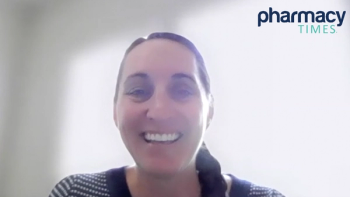
Alyssa Modic, PharmD, emphasizes the importance of evidence-based advocacy and continuous education as vaccine recommendations evolve.